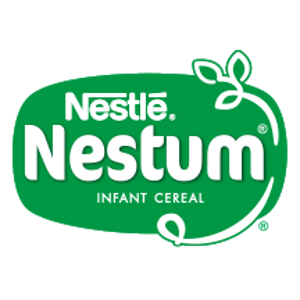
How to encourage baby’s first words
If you want to learn how to encourage your baby’s first words and how your support can help, read this article.
As a mother, witnessing your child's developmental milestones is an incredibly rewarding journey. Among these significant moments, perhaps one of the most anticipated is hearing your baby’s first words. The excitement and wonder that come with those initial utterances can be both thrilling and heartwarming.
Understanding the importance of fostering language skills in infancy lays a strong foundation for your child's future communication abilities. By engaging in purposeful interactions and creating a supportive environment, you can actively contribute to your baby's linguistic journey.
From the gentle cooing of infancy to the joyful babbling of early exploration, each vocalization marks a step towards meaningful communication. Through simple yet effective strategies and activities, you'll learn how to stimulate your baby's curiosity and encourage verbal expression.
In Baby&Me, we'll explore the intricacies of encouraging and nurturing your baby's language development, focusing specifically on those precious first words.
What Happens in Your Baby’s Brain?
First words are not only a milestone in their development within their brain. Understanding the neurological processes behind this milestone can provide valuable insights into how best to support and encourage your little one's language acquisition.
During the first year of life, your baby's brain undergoes remarkable growth, particularly in areas associated with language processing.
One crucial region is the left hemisphere's language centers, including Broca's area, responsible for producing speech, and Wernicke's area, involved in language comprehension.
As your baby listens to your words and observes your facial expressions, their brain is busy making connections between sounds and meanings. Neurons form intricate networks, linking auditory stimuli with cognitive concepts, and laying the groundwork for language comprehension.
Around six to twelve months of age, your baby begins to produce their first recognizable sounds, signaling the activation of Broca's area as they attempt to mimic the sounds they hear.
These early vocalizations, often in the form of babbling, reflect the brain's efforts to coordinate muscle movements necessary for speech production.
With repeated exposure to language and interaction, your baby's brain refines these neural circuits, paving the way for more intentional communication. By around twelve to eighteen months, many babies utter their first words, a testament to the remarkable neuroplasticity of the infant brain.
How to encourage your baby’s first words?
Encouraging your baby's first words involves creating a supportive environment that stimulates language development and fosters communication. Here are some detailed recommendations to help you nurture your little one's linguistic skills.
Talk to Your Baby
Engage in frequent, one-on-one conversations with your baby throughout the day. Describe your actions, name objects, and narrate daily routines. Use simple, repetitive phrases and speak in a soothing tone to capture your baby's attention and promote language comprehension.
Respond Promptly
When your baby attempts to communicate through babbling, gestures, or sounds, respond promptly and enthusiastically. Mirror their vocalizations and provide positive reinforcement, validating their attempts at communication and encouraging further interaction.
Read Together
Incorporate daily reading sessions into your routine, exposing your baby to a variety of books with colorful pictures and simple texts. Point to objects, make sound effects, and encourage your baby to vocalize or imitate sounds. Reading not only enhances vocabulary but also strengthens bonding and cognitive skills.
Sing Songs and Rhymes
Singing nursery rhymes, lullabies, and songs with repetitive lyrics can captivate your baby's interest and enhance their language development. Music stimulates various areas of the brain associated with language processing and memory, making it a powerful tool for promoting verbal expression.
Play Interactive Games
Engage in interactive games such as peek-a-boo, pat-a-cake, and imitative play. These activities not only promote social interaction and bonding but also encourage your baby to mimic sounds, gestures, and facial expressions, laying the foundation for speech development.
Limit Screen Time
Minimize your baby's exposure to screens, including television, smartphones, and tablets. Instead, prioritize face-to-face interactions and hands-on experiences that stimulate language acquisition and cognitive skills. Excessive screen time may impede language development and hinder social interaction.
Create a Language-Rich Environment
Surround your baby with a rich variety of language stimuli, including conversations, songs, and storytelling. Label objects in the environment, introduce new vocabulary words, and encourage exploration through sensory play. A stimulating environment enhances your baby's curiosity and encourages active participation in language learning.
By implementing these strategies consistently and providing a nurturing and language-rich environment, you can empower your baby to take their first steps towards verbal expression and communication.
Remember to celebrate each milestone along the way and cherish the magical moments of hearing your baby's first words.

Why It's Important to Stimulate Speech for Your Baby?
Encouraging and stimulating speech development in your baby is not just about teaching them to communicate; it's about laying the foundation for their overall cognitive, social, and emotional development.
- The early years of life are when the brain is most receptive to language learning. By exposing your baby to a rich linguistic environment, you're providing them with the necessary input to acquire language skills efficiently.
- Language and cognitive development are intricately linked. Through speech stimulation activities you're not only introducing them to new words and cognitive processes such as memory, attention, and problem-solving.
- Communication is essential for building social connections and relationships. Encouraging your baby to communicate through speech promotes social interaction and bonding with caregivers, siblings, and peers.
- Being able to express thoughts, feelings, and needs is empowering for your baby. Stimulating speech development allows them to communicate their desires, share experiences, and engage with the world around them.
- Early intervention in speech and language development can help prevent or mitigate communication disorders later in life. By actively stimulating speech from infancy, you're promoting healthy communication patterns and addressing any potential issues early on.
In essence, stimulating speech for your baby is not just about teaching them words; it's about nurturing their overall development and setting them up for a lifetime of successful communication and learning.
Your role as a caregiver in providing a supportive and language-rich environment is invaluable in shaping your baby's linguistic journey and future success.
SOURCE:
https://parents.com/baby/development/talking/baby-talk-a-month-by-month-timeline1/

Gain a better understanding of your child's development with the help of our stages
































